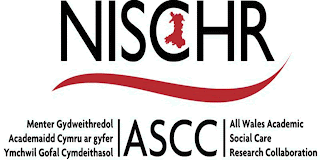The Social Services
Improvement Agency’s Citizen Directed
Support Summit.
On Friday 26
th. April 2013 The @ASCCCymru team
attended the Citizen Directed Support Summit at the media resource centre in
beautiful
Llandrindod Wells.
http://bit.ly/YhGdhG
Citizen Directed Support (CDS) is an approach/model by which
people who require assistance can live as independently as possible.
Access to mainstream opportunities most people enjoy, are
enabled through the support of others who recognise that the person her/himself
is best placed to know what they need and how these needs can be met. CDS adheres to the fundamental social work
tenets of respect for the person, valuing and empowering her/him as an
individual with the capacity to change and supporting self determination.
The Welsh Government, within Sustainable Social Services,
identified as a key principle that the people in Wales should have a 'strong
voice and real control'. They identified Self Directed Care as an approach by
which this could be achieved and stated that "The model will offer a range
of methods for securing services".
To support the development of CDS across Wales there is a
Citizen Directed Support Learning and Improvement Network (CDS LIN) which
consists of local government representatives.
This network is supported and facilitated by the SSIA, to learn more
about the CDS LIN please click here:
http://bit.ly/13FFBRf
Structure of the
Summit.
One of the morning sessions was provided by Steve Dowson a
social care consultant and trainer who explored the international and other UK
experiences of developing CDS outside Wales. This was a very interesting
session where Steve explored the very different ways that CDS support has been
interpreted in various environments and social care settings.
You can find a link to a selection of Steve’s
papers here:
http://bit.ly/10o4igU
Later in the morning there were three different perspectives
delivered of experience of implementing service delivery change in three
different local authority areas within Wales:
This presentation again explored the
various challenges that face those that seek to change more traditional ways of
working and the challenges and promises this can present.
Following lunch there was a series of parallel workshops
that explored:
Effective information for citizens
Definition of Citizen Directed Support.
Managing cultural change and expectations.
A New Focus on families
These workshops provided a focus for lively and constructive
discussion of the day to day issues practitioners are facing.
The day was rounded off by a feedback session to the whole group from the individual
parallel sessions. The whole day
provided a useful focus to help improve knowledge and understanding of best practice and current models of CDS and how it can be best developed and
implemented.





